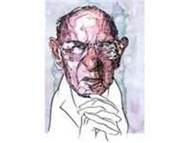Homework.
You know what I’m talking about. It’s one of those things, gotta do it.
Practice makes perfect, right?
Try
thinking twice about homework, maybe it’s not alright.
The
first public school in the North American colonies—the Boston Latin
School—assigned homework to its students because the Puritans were sure that
“practice makes perfect.”
In
the middle of the 19th century, there was some sentiment that
homework wasn’t entirely healthy for kids. In 1900, the Ladies’ Home Journal and pediatricians across the country started a
movement to cut back on homework in favor of exercise and outdoor play. That
didn’t last long.
The
Sputnik scare and the Reagan administrations’ A Nation At Risk report cranked up the pressure for more homework
to boost scholastic test scores.
Students
today are doing about 50 percent more homework than their counterparts in the
1980s.
Of
course some after school book work can be beneficial to students, but the
modern pile of homework also contributes to student stress and lost playtime
and lost sleep.
The
trouble is that there’s no rigorous evidence that a lot of homework does a lot
of good.
Here’s
an excerpt from a new book on what ails our public schools:
“…excessive
homework does more harm than good…Scientific research demonstrates that in many
cases, homework does nothing to improve students’ academic performance…In 2006,
Duke University’s Harris Cooper surveyed fifteen years’ worth of homework studies
conducted across the country. The conclusion: homework was found to have little
to no benefit before high school and diminishing returns for high school
students as the hours spent doing it increased.”
Some
homework helps some students. Parents and teachers should start believing that.
Source:
Vicki
Abeles, Beyond Measure, New York:
Simon & Schuster, 2015, 69-74.
Copyright © Richard Carl
Subber 2016 All rights reserved.




















